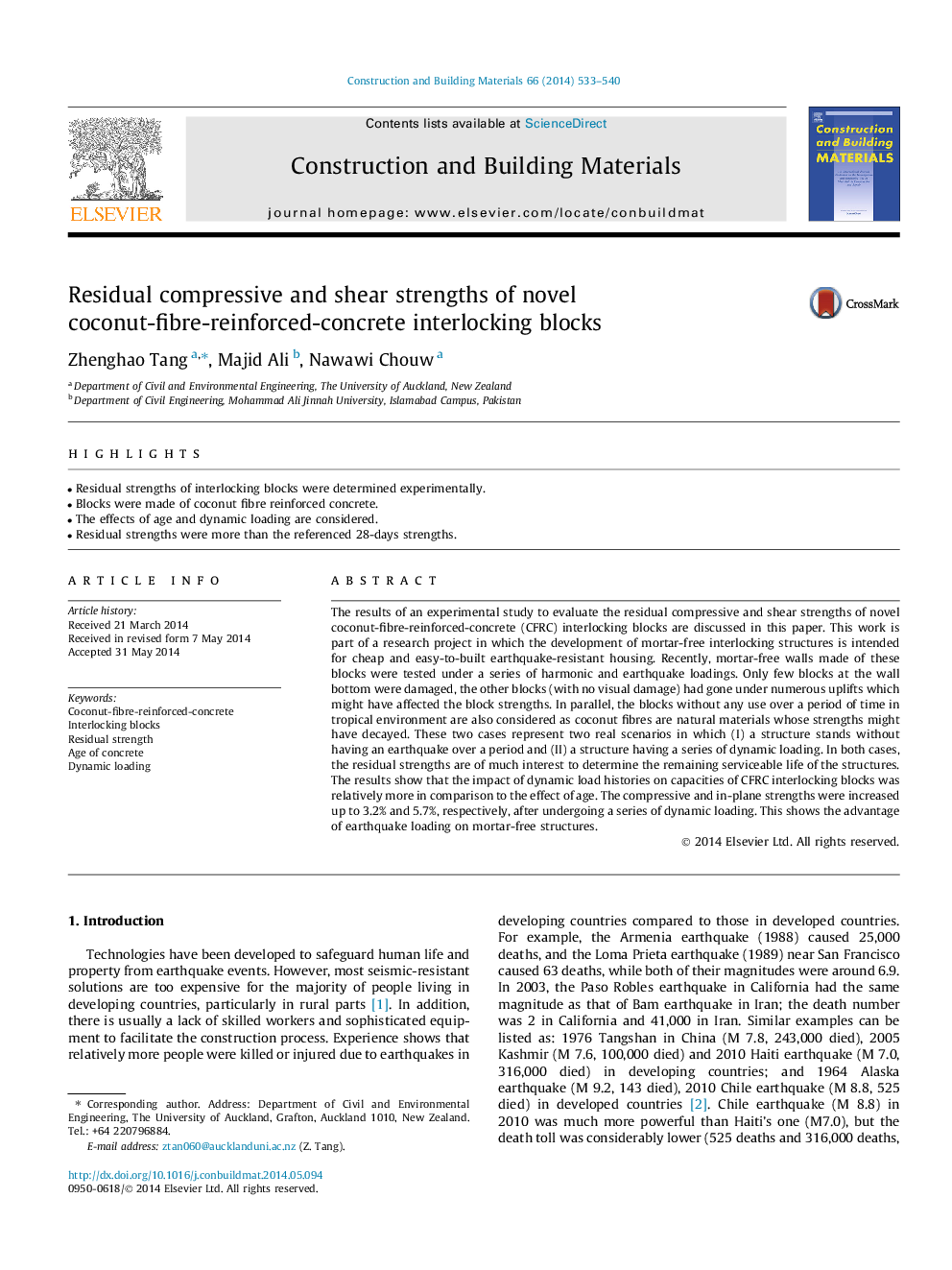| Article ID | Journal | Published Year | Pages | File Type |
|---|---|---|---|---|
| 6722929 | Construction and Building Materials | 2014 | 8 Pages |
Abstract
The results of an experimental study to evaluate the residual compressive and shear strengths of novel coconut-fibre-reinforced-concrete (CFRC) interlocking blocks are discussed in this paper. This work is part of a research project in which the development of mortar-free interlocking structures is intended for cheap and easy-to-built earthquake-resistant housing. Recently, mortar-free walls made of these blocks were tested under a series of harmonic and earthquake loadings. Only few blocks at the wall bottom were damaged, the other blocks (with no visual damage) had gone under numerous uplifts which might have affected the block strengths. In parallel, the blocks without any use over a period of time in tropical environment are also considered as coconut fibres are natural materials whose strengths might have decayed. These two cases represent two real scenarios in which (I) a structure stands without having an earthquake over a period and (II) a structure having a series of dynamic loading. In both cases, the residual strengths are of much interest to determine the remaining serviceable life of the structures. The results show that the impact of dynamic load histories on capacities of CFRC interlocking blocks was relatively more in comparison to the effect of age. The compressive and in-plane strengths were increased up to 3.2% and 5.7%, respectively, after undergoing a series of dynamic loading. This shows the advantage of earthquake loading on mortar-free structures.
Keywords
Related Topics
Physical Sciences and Engineering
Engineering
Civil and Structural Engineering
Authors
Zhenghao Tang, Majid Ali, Nawawi Chouw,
